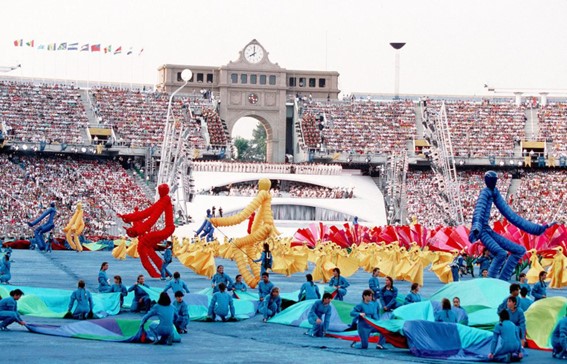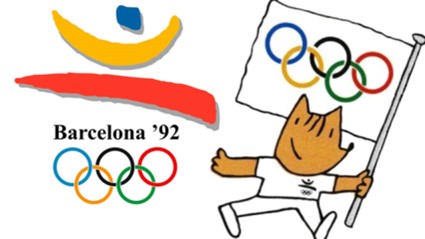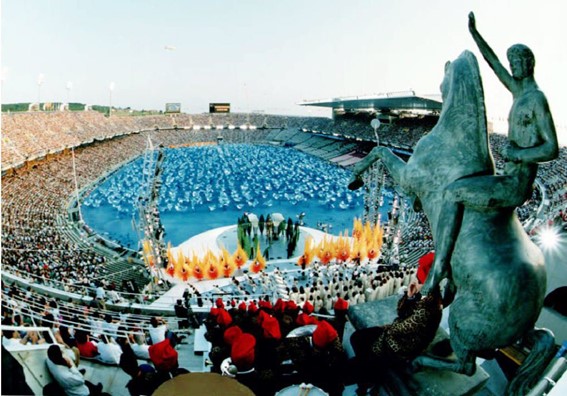Barcelona and Its Transformation Thanks to the Olympic Games
The 1992 Barcelona Olympic Games marked a turning point in the city’s history. Not only did they place Barcelona on the world stage, but they also catalyzed an unprecedented urban, economic, sports, and tourism transformation. Here are the key highlights of this event, which remains a source of pride for all Barcelonians:
Urban transformation: The Olympic Games drove the modernization of the city. The Montjuic Olympic Ring was built, infrastructure across all districts was improved, and buildings were renovated. Additionally, the city was opened up to the Mediterranean Sea with the construction of the Olympic Village in Poblenou and the Olympic Port.
Decentralized impact: The transformation was not limited to Barcelona but included sub-venues in other parts of Catalonia, fostering development throughout the region.
Citizen participation: More than 35,000 volunteers contributed to the organization, demonstrating the commitment and involvement of Barcelona’s society.
Global recognition: The event served as a showcase for democratic Spain and established Barcelona as an international reference. The then-president of the IOC, Juan Antonio Samaranch, declared them “the best Olympic Games of the modern era.”

Sports highlights:
- Diversity of sports: 257 events were held in 25 Olympic sports. New additions included badminton and baseball, while slalom canoeing returned to the program.
- Memorable athletes: Standout figures included gymnast Vitaly Scherbo, swimmer Krisztina Egerszegi, and legendary athlete Carl Lewis. Additionally, the U.S. basketball “Dream Team,” composed of NBA stars, dominated their way to gold.
- Medal count: The Unified Team led with 112 medals. As the host nation, Spain achieved its best-ever performance with 22 medals, 13 of them gold.
- Legacy and urban development:
- Opening to the Mediterranean: Barcelona embraced the sea with the construction of the Olympic Village, the Olympic Port, and the urbanization of Poblenou.
- Transportation and communication improvements: Transport infrastructure was modernized, including the expansion of El Prat Airport and the renovation of Estación del Norte. New avenues, parks, and clean beaches were also part of the city’s renewal.

- Culture and symbols of the games:
- Mascot: “Cobi,” the Catalan sheepdog designed by Javier Mariscal, became an iconic symbol of the Games with its cubist and colorful style.
- Music: “Amigos para siempre,” performed by José Carreras and Sarah Brightman, was the official song. Another emblematic piece was “Barcelona” by Freddie Mercury and Montserrat Caballé.
- Historic participation: 169 countries and 9,356 athletes competed in Barcelona, with no political boycotts for the first time since 1972. Notable was South Africa’s return after the end of apartheid and the participation of former Soviet republics under the Olympic flag.
The 1992 Barcelona Olympic Games not only transformed the city but also left a lasting legacy that continues to influence its development and identity as one of the world’s most important sports and tourist destinations.


